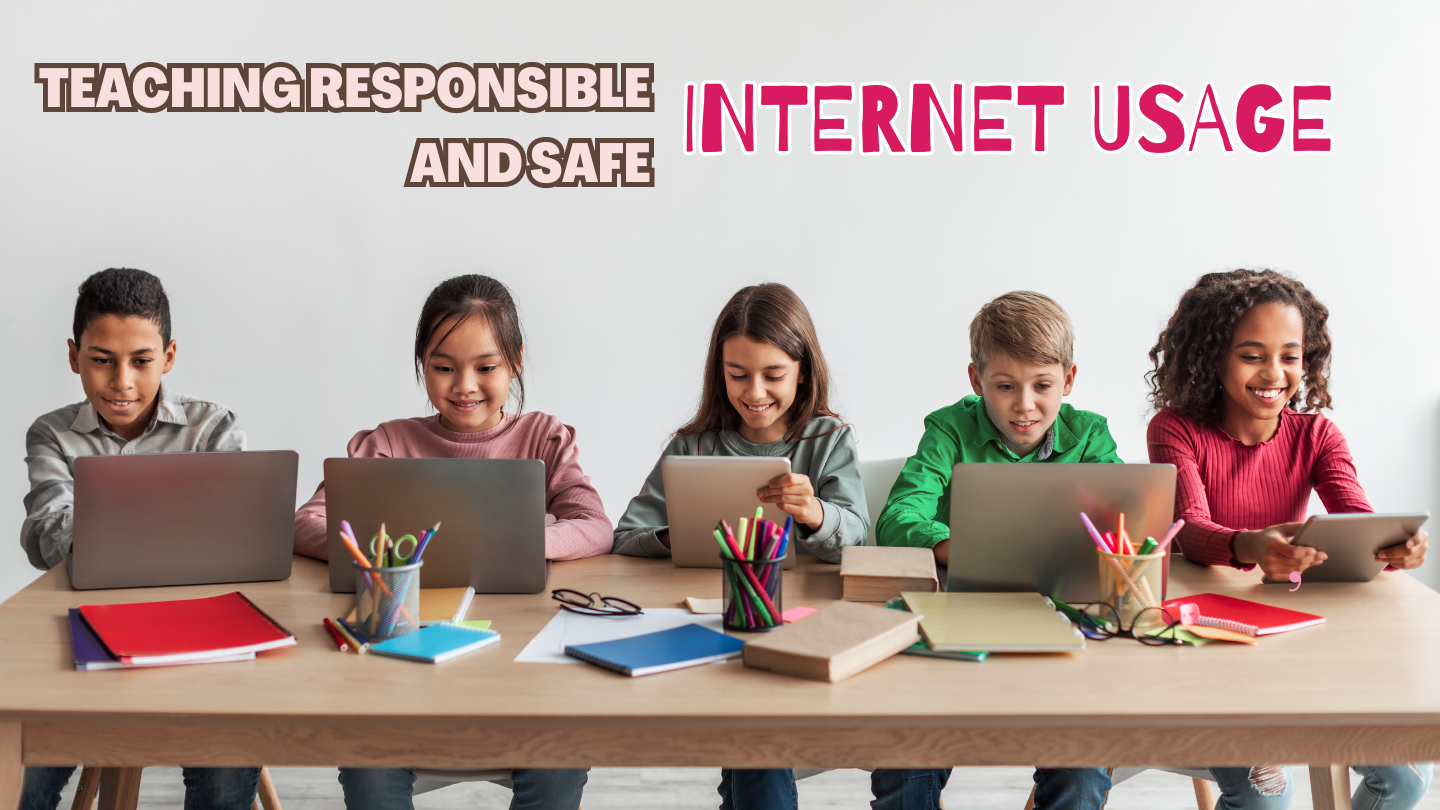Published by: Digital Schools
Teaching responsible and safe internet usage is crucial, especially for young users. Here’s a simplified guide to help:
- Privacy Matters:
- Keep personal information (like full name, address, phone number) private.
- Use strong, unique passwords for each account.
- Adjust social media settings to control who can see your posts.
- Cyberbullying Awareness:
- Be kind online just as you would in person.
- If someone is unkind to you, don’t engage; block or report them.
- Seek help from a trusted adult if you’re a victim of cyberbullying.
- Avoid Strangers:
- Don’t share personal information or meet people you’ve only met online.
- Verify the identity of anyone you interact with online, especially in gaming or chat apps.
- Think Before You Post:
- Consider the consequences of your online actions.
- Once you post something, it’s often there forever, so be careful.
- Respect Copyright:
- Don’t use or share other people’s work without permission.
- Cite sources when using information found online.
- Security Software:
- Install and update antivirus and anti-malware software.
- Be cautious when clicking on links or downloading files.
- Safe Online Shopping:
- Shop from reputable websites.
- Look for “https://” and a padlock icon in the address bar for secure connections.
- Phishing Awareness:
- Don’t click on suspicious links in emails or messages.
- Verify the sender’s identity before sharing any sensitive information.
- Balance Screen Time:
- Limit the amount of time spent online.
- Make time for outdoor activities, face-to-face interactions, and hobbies.
- Talk to Trusted Adults:
- Share any concerns or problems you encounter online with a parent, guardian, or teacher.
- They can guide you and help when needed.
- Be Skeptical:
- Don’t believe everything you read online.
- Use critical thinking skills to evaluate information’s reliability.
- Empower Yourself:
- Learn about digital literacy and how to be a responsible online citizen.
- Keep up-to-date with internet safety trends and tools.
By following these simplified guidelines, you can navigate the internet safely and responsibly. Always remember that your online actions can have real-world consequences, so use the internet wisely and respectfully.


